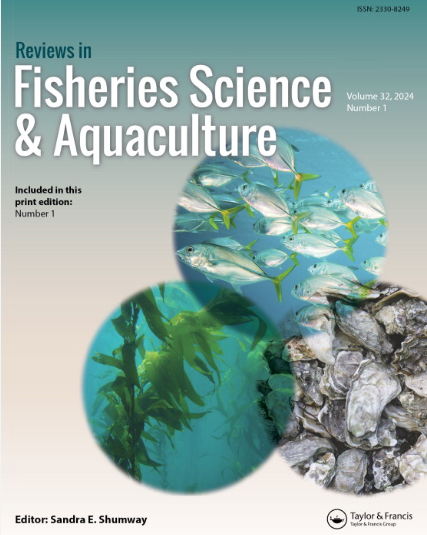识别和解释表型变化的挑战:人为因素对鲑鱼成虫迁移时间的影响
IF 6.4
1区 农林科学
Q1 FISHERIES
引用次数: 10
摘要
摘要许多动物的迁徙时间已经发生了变化,使它们能够通过匹配非生物条件和资源脉冲的季节变化来最大限度地提高繁殖和觅食的成功率。这些季节性变化可能会随着气候的变化而变化,导致迁徙和资源可用性之间的不匹配,除非种群通过表型可塑性或进化适应做出反应。然而,与气候无关的因素影响酚学是很常见的。三文鱼是一类研究得非常好的鱼类,其繁殖迁徙可以作为考虑影响迁徙表型的复杂因素的模板。本文综述了解释成年鲑鱼迁徙表型变化的假说。首先总结了气候变化可能影响迁徙时间的途径,包括迁徙线索的变化、淡水条件的限制、海洋分布和条件的变化以及胚胎发育的改变。然后探讨了鲑鱼酚类变化的其他原因,包括河流栖息地的人为变化、人口影响、孵化场和渔业。这些因素对气象学的影响可以模拟和掩盖气候影响,这使得理清观测模式的因果基础变得很有挑战性。建议提出并严格测试具体的机制假设,并系统地排除替代原因,而不是根据时序数据的趋势推断变化(通常这样做)。总的来说,将因果关系归因于酚类变化是一项挑战,但鲑鱼举例说明了迁徙时间的多种变化方式,包括气候和其他过程造成的变化。本文章由计算机程序翻译,如有差异,请以英文原文为准。
Challenges in the Identification and Interpretation of Phenological Shifts: Anthropogenic Influences on Adult Migration Timing in Salmonids
Abstract Migration timing has evolved in many animals, allowing them to maximize breeding and feeding success by matching seasonal changes in abiotic conditions and resource pulses. These seasonal changes can shift with the climate, resulting in mismatches between migrations and resource availability unless the populations respond through phenotypic plasticity or evolutionary adaptation. It is common, however, for factors unrelated to climate to affect phenology. Salmon are an exceptionally well-studied group of fishes whose breeding migrations can serve as a template to consider the complex factors affecting migration phenology. In this paper, hypotheses for explaining changes in adult salmon migration phenology are reviewed. Pathways through which climate change may influence migration timing are first summarized, including shifting migration cues, limiting freshwater conditions, changes in distribution and conditions at sea, and alterations in embryo development. Alternative causes of phenological change in salmon are then explored including anthropogenic modifications of river habitat, demographic effects, hatcheries, and fisheries. The effects of these factors on phenology can mimic and mask climate effects, making it challenging to disentangle the causal basis of observed patterns. Instead of inferring shifts from trends in timing data (as is often done), it is suggested that specific mechanistic hypotheses be proposed and tested rigorously, and alternative causes systematically ruled out. Overall, it is challenging to attribute causation to phenological change, but salmon exemplify the many ways in which migration timing can change, including shifts due to climate and other processes.
求助全文
通过发布文献求助,成功后即可免费获取论文全文。
去求助
来源期刊

Reviews in Fisheries Science & Aquaculture
FISHERIES-
CiteScore
25.20
自引率
0.90%
发文量
19
期刊介绍:
Reviews in Fisheries Science & Aquaculture provides an important forum for the publication of up-to-date reviews covering a broad range of subject areas including management, aquaculture, taxonomy, behavior, stock identification, genetics, nutrition, and physiology. Issues concerning finfish and aquatic invertebrates prized for their economic or recreational importance, their value as indicators of environmental health, or their natural beauty are addressed. An important resource that keeps you apprised of the latest changes in the field, each issue of Reviews in Fisheries Science & Aquaculture presents useful information to fisheries and aquaculture scientists in academia, state and federal natural resources agencies, and the private sector.
 求助内容:
求助内容: 应助结果提醒方式:
应助结果提醒方式:


